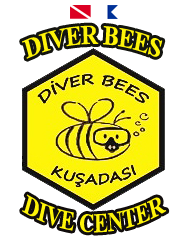So you have completed your Open Water and Advanced Open Water Diver courses. Congrats! Now you improved your diving techniques further and you know more about “deep diving” and “underwater navigation”. Your buoyancy is also better underwater and you know the right techniques to use during drift diving and boat diving… But there are still some things missing…
Scuba diving is a fun activity as long as it is safe. Sometimes, divers get distracted by the beauty of the underwater world and make some mistakes, even you may be the one to make mistakes. Therefore, it is crucial to know critical “rescue” and “self-rescue” skills.
Divers may experience problems at the surface, they may get tired, feel stressed or even panicked in some situations. There are some simple responses and helping methods to calm and rescue the diver in such cases. As long as we are aware of the situation and keep our calm and prudence.
Rescue diver course is not as challenging as people think. The course is all about helping yourself and others in stressful situations.
For example, when you see a diver who is struggling with the current and has too much weight on him, who is exhausted and low on air, do you know how you will approach and help him in a safe way? Maybe you will never need this, but do you know how to handle missing diver, unresponsive or panicked diver situations underwater? How will you administer first aid to decompression sickness, embolism and other pressure related injuries? What if your buddy touches an aquatic animal (which she should never do that) and got stung or bitten by it, how will you help? How will you use emergency oxygen or AED (Automated External Defibrilator) units for first aid? In short, how will you manage the emergency?
Rescue Diver course is about how rescue and emergency medical professionals handle emergencies, and how a competent diver acts at the surface and underwater before and after a dive. You will learn all these topics and practice rescue skills to increase your own competence. If you want to continue your diving education and become a Divemaster one day, then you will learn many things to help you with this goal.
There is an important to know when enrolling in this course: EFR (Emergency First Response) Primary and Secondary Care course is a prerequisite (or you can join both courses at the same time) of Rescue Diver course. As you can imagine, a rescue diver should have an extended knowledge of first aid and other emergencies. You can take both courses in our dive center consecutively or at the same time.
To earn the PADI Rescue Diver certification, you will complete 10 exercises including emergency management, search and rescue techniques, 2 scenarios and the final exam.

